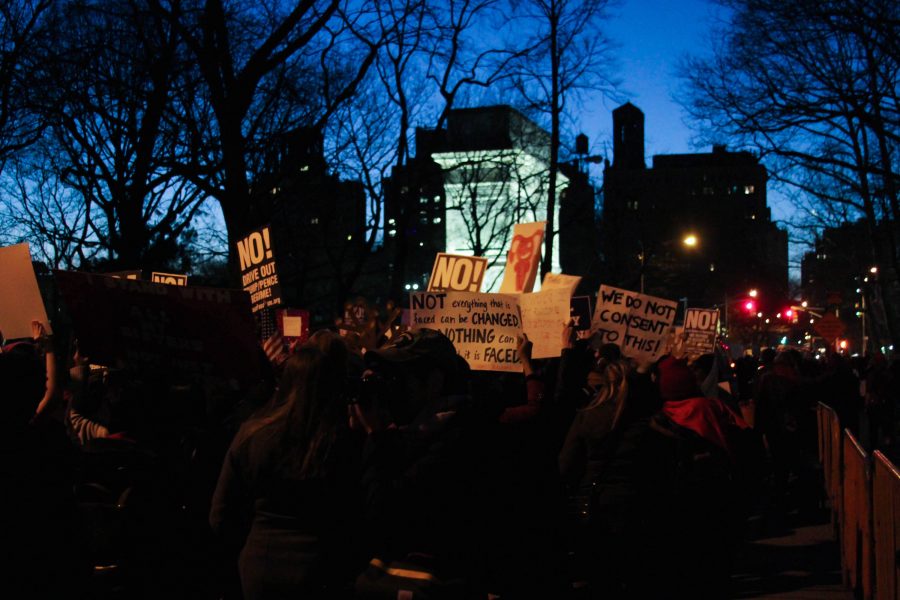An NYU Student’s Guide to Protesters’ Rights
Many students at NYU participate in activism, whether it be for women’s rights, environmental policy or immigration issues.
April 24, 2017
There was a time when NYU students woke to the sound of birds chirping, but more often these days, we wake to the rousing chants of protesters.The campaigns for women’s rights, racial justice and immigrants’ rights have been thrust into the global political spotlight. However, in response to these shouting voices of change, many U.S. legislators are working towards restricting protesters’ rights instead of protecting them. In as many as 18 states, Republican lawmakers have put forward bills that restrict protesting which call for steeper consequences for blocking roadways and exoneration for drivers who hit protesters, according to the Washington Post. What was once an unalienable right could now be considered a crime.
What does our right to protest truly mean? Legal protection for protesting goes hand in hand with the First Amendment and its protection of freedom of speech. If you know your rights, you are better equipped to make your voice heard and not face legal consequences.
Read the following basic rights of protesters and commit them to heart before participating in any highly publicized act of defiance.
- Citizens, including protesters, have the right to exercise freedom of speech across all forms of communication and symbolic acts. What qualifies as a symbolic act, however, is less cut-and-dry — flag-burning is constitutionally protected, but obstructing traffic is not. If your act of symbolism is illegal on grounds outside of protest, then it doesn’t count. That means no blocking traffic and no vandalizing, to begin with.
- Protesters can exercise freedom of speech in all public areas including streets, sidewalks, parks and government buildings that are unrestricted.
- You need a permit for free speech activity if you are participating in a march or parade that does not stay on the sidewalk and forces street traffic to be closed off, uses sound amplifying devices or occurs at any park or plaza that requires it.
- You have the right to take photos, and no officer can can take your personal items unless they have a warrant or suspect criminal activity.
However, there are times in peaceful protests where arrests do happen. A protester can be arrested if they are disobeying preexisting laws, do not have a permit when required, are destroying private property or are endangering those around them.
Should you find yourself under arrest, there are still legal protections owed to you.
- Do not resist arrest. You have the right to question the motive behind the arrest but otherwise should practice your right to remain silent, as anything you say can be used against you in a court of law, and ask for a lawyer.
- You have the right to one local phone call, which is monitored by the police. Calls to lawyers are also monitored.
- If you suspect an officer of misconduct, do not engage with that officer. Remember all the details of the officer, the incident and if witnesses were present, and then file a complaint with the internal affairs division or a civilian complaint.
Protest and arrest do not have to be a married pair. It is possible to peacefully let your voice be heard by knowing what your rights are and how to act on them. Protesting is incredibly important to our world. It symbolizes that the few do not always speak for the many and in New York, there are many of us.
Email Riley Blake at [email protected].

















































































































































Anon • Apr 25, 2017 at 4:55 am
I’m sick of you protesters because you’re giving cover to intolerant people like antifa. You protest everything and keep calling everyone hateful, but the most hateful ones of all are you.